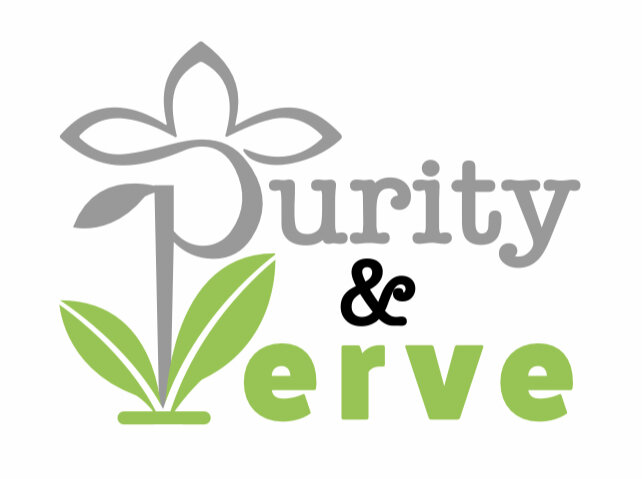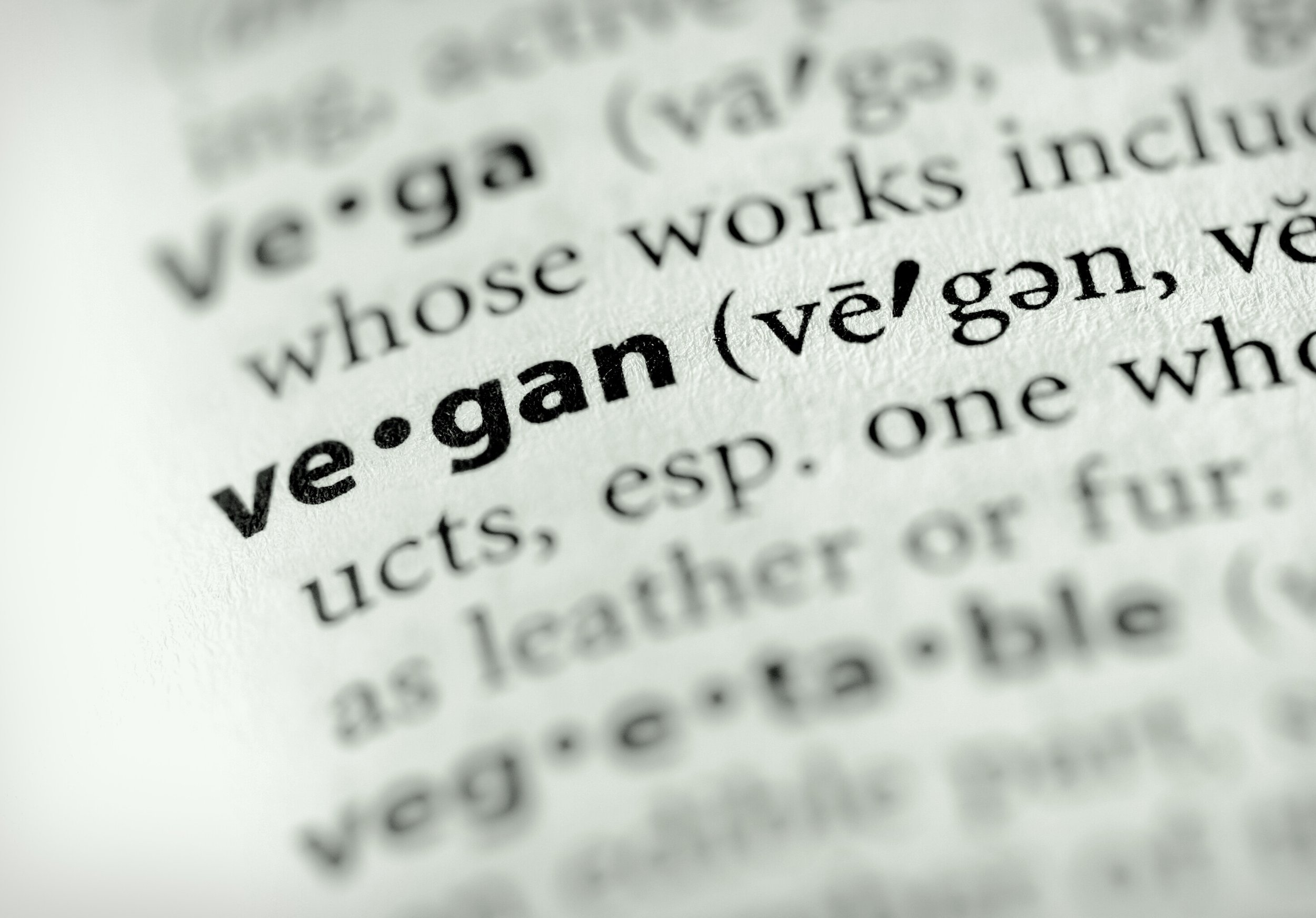Why Don’t I Feel Good on a Vegan Diet?
by Cy Nr
PurityandVerve.com
There are a number of reasons why some individuals don’t feel well when practicing a vegan dietary lifestyle. Veganism is a process and it can take time to fine tune this diet so that it works for you. Here are several culprits as well as adjustments that can be made to feel better and stay on the road to better health (1).
The Body is Detoxifying: Making any significant change from a higher acid to a lower acid diet will accelerate the body’s detoxification processes. A healing crisis (an acute cluster of detoxification symptoms) can emerge which may manifest as a runny nose, coughing, sneezing, nausea, vomiting, tiredness/malaise, bowel disturbances, headaches, pain, body aches and more. It is essential that we allow these toxins and acids to eliminate in order to achieve a higher state of health. It’s simply a reversal of the damage we have done to ourselves, and part of the body’s quest to heal itself.
A common scenario is that an individual adopts a vegan diet, feels unwell and retreats to non-vegan food. They search for some variation of “don’t feel good on vegan diet” online and are led to web propaganda. This baseless information makes veganism out to be the culprit and directs them towards a more “balanced” diet. If they were eating fruits and vegetables, felt unwell and went out and got a a burger and fries, this would certainly slow the detoxification process, relieving some of the symptoms of the healing crisis. But it’s at the expense of re-impacting toxins and moving further away from health. An alternative is to take a smaller and more healthful step. Increase vegetable intake, either raw or lightly steamed when you feel you need to slow things down. Taking lymphatic and kidney-supportive herbs can also help hasten the eliminative process and restore a feeling of well-being. Detoxification is a natural process constantly taking place in our bodies. When we eat fruits (especially fruits!), and vegetables, we allow our body to exercise its cleaning mechanisms. Stay strong, push through, and you will find yourself in a better place very soon.
Not Enough Fruits and Vegetables: A vegan diet should have a bare minimum of 80% fruits and vegetables, in their raw state as often as possible. Many vegans follow a cruelty-free carbon copy of the standard American or junk food diet. It’s bagel and vegan cream cheese for breakfast, vegan pizza for lunch and vegan chicken wings for dinner. Essentially, anything goes as long as it’s vegan. Further, there are some vegan “authorities” who, in fact, encourage people to consume grains as the staple in our diet. What a lot of vegan literature refers to as the “vegan food pyramid” is essentially the now-defunct USDA food pyramid with the meat, eggs and dairy products removed, but everything else intact, leaving grains at the base of the pyramid. I assure you, eating copious amounts of mock meat and starch are surefire ways to fail in the vegan way of life. Still others eat more healthfully, but still include large amounts of fat, grains, legumes and starches in their diets. Stick to a minimum 80% fruits and vegetables rule, preferably fresh, raw produce and you will feel an enormous difference in the quality of your diet and health. Our body is not designed to consume soy products, grains, beans and processed foods. Drastically reduce or eliminate these for greater wellbeing. A simplified and healthful vegan food pyramid can be found here.
Overeating: Some new vegans struggle with residual hunger from eliminating meat, dairy and eggs from their diet. If a person has never not eaten these heavier, congestive, acidic, high protein and high fat foods, a different spectrum of fullness and hunger can reveal itself. Hunger typically resolves with time. Take it easy and allow yourself to work through these feelings. You will be amazed to see your authentic appetite restored as your body relearns itself. Up your fruit and vegetable intake. Include lots of fiber-rich produce, like fruit in it’s whole state and leafy greens. Much of hunger is induced by empty calorie foods. Once you are accustomed to nutrient, mineral and fiber-rich foods, you will find yourself satiated on a deeper, cellular level.
Too Much and the Wrong Kinds of Sugars: Consuming refined sugar, sweets, and starches can lead to a rollercoaster of sugar highs and crashes. Avoid any and all processed sugars. If needed, use natural sweeteners like maple syrup, agave, lucuma and honey (if you are okay using honey). Good quality fruit is so much better than sugary-sweetened deserts and pastries. Eating fruit over time, your sense of taste will change and you will lose your desire for processed and oversweet food products. Starches are another form of sugar which must be reduced or eliminated from the diet. Let fruits and vegetables take center stage and feel the difference.
Undereating: Some newfound vegans struggle with figuring out what to eat and don’t take in enough, particularly when they are transitioning off of an omnivorous dietary lifestyle. This can take place in combination with overeating, or as a standalone issue. Many people simultaneously don’t eat enough of what they should while, at the same time, consuming too much of the wrong kinds of foods. The key to overcoming all of these dietary/lifestyle issues is education; learning about healthful vegan living along with accessing your own body intelligence and intuition to better understand what your body truly needs.
Adrenal Weakness: The adrenals are two small glands that sit on top of the kidneys. They produce hormones that are involved in many important body processes. Poor adrenal health is endemic in today’s world. Animal products, particularly meat, can offer the adrenals what feels like a “boost,” while withdrawing from these foods can leave one craving stimulation. You can assess your adrenal health by checking your blood pressure on both arms. Blood pressure that is too high or too low indicates adrenal weakness. Blood and saliva testing for cortisol, a hormone produced by the adrenal glands and an indicator of adrenal health is available for those wanting additional analysis. My advice is to begin supporting the adrenals prior to or alongside adopting a vegan lifestyle. Include supportive herbs and adaptogens in your regimen. Avoid excessively intense activity and replace it with gentler forms of regular exercise. Significantly reduce or eliminate caffeine from your diet. Practice stress management using healthy stress-reduction techniques. Fruits will help detoxify and enhance the adrenals and kidneys. Since the kidneys are key eliminative organs, this will help in the overall detoxification experience. While animal foods may offer temporary relief, they ultimately detract from truly healthy adrenal function which needs no stimulus.
Bowel Issues: People unused to the high fiber content that comes with eliminating meat and dairy and eating a greater amount of fruits and vegetables may need some time to adjust. Meat, dairy, eggs and their derivatives contain no dietary fiber and congest the system significantly. A vegan lifestyle can help us recognize a new baseline of bowel function. Proceed gradually and understand which foods promote robust bowel function and which ones slow things down. Bananas are a known go-to, a starchier, sweet fruit which can help to calm down what may feel like an overactive bowel. Still others may experience bowel underactivity. This is likely a temporary situation and will shift towards a more regular bowel function. A higher percentage of raw fruits and vegetables (80%+), occasional enemas/colonics, moderate physical activity and rest can assist in restoring a temporarily underactive bowel. If you are experiencing extreme underactivity, overactivity or discomfort that doesn’t resolve, consult with a qualified detoxification specialist.
Food Addiction: Do you have addictions to foods that are preventing you from progressing into a more healthful lifestyle? Many people have great intentions to achieve a higher state of health. It all starts with having the correct mindset to guide decision-making processes. Food addiction is real but so is our ability to overcome it. Be aware that food addictions can become more pronounced during detoxification where old toxins including residues of foods that do not belong are released from the system. My best advice is to develop an increased self-awareness and knowledge around your goals to strengthen your pursuit. Stick with it and these addictions will subside.
Culture: Are you experiencing cultural stress in relation to your vegan lifestyle? This can mean pressure from family members to eat animals foods, missing your favorite dishes, or an unwillingness to part ways with unhealthy practices because they have cultural significance for you. This is something important to explore within yourself. How does your connection to culture align or misalign with your goals? Are unhealthful practices within your culture truly reflective of your legacy? Are there healthful elements or practices you could implement instead which will keep you connected with your history without compromising your health? Further, to what extent, if any, does your culture define you? These are important questions to reflect upon as they relate to your aspirations for greater health.
Lack of Transition: Not taking the time to transition effectively is another major reason why people don’t feel well on a vegan diet. Many go back and forth between healthy and unhealthy foods or make drastic changes too quickly. Moving from heavier animal-based foods, meats, dairy and processed food to a primarily fruit and vegetable diet in a very short period can be a lot for the body to go through. Transitioning more gradually, ensuring permanent, lifelong changes along the way is a healthier and more sustainable approach. This is also where body wisdom comes into play. Go at your own pace, do what feels right and make progress towards your goals.
Notes
(1) I am not using the word vegan here to mean an inherently healthy way of living. Veganism is not a single diet, but a spectrum of different beliefs, motivations and lifestyles. Within veganism, one can find extremely healthy ways of eating. A starting point for healthy veganism is the elimination of processed foods, starches/grains and refined sugars with a minimum of 80% fruits and vegetables.


